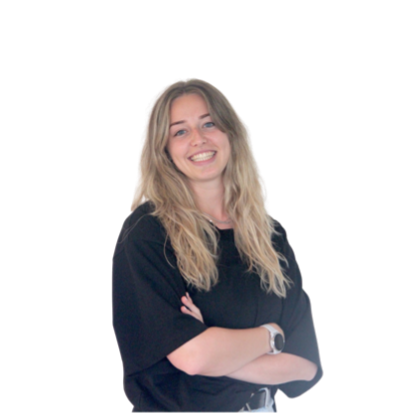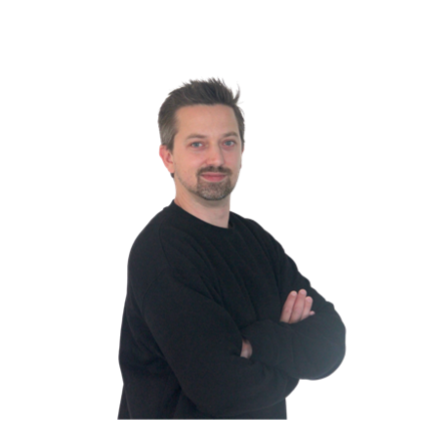
TRANSFER: Training skills for evidence-based practice and clinical reasoning
Since 2017, we’ve been running an innovative educational project in the first year of our master’s program in physiotherapy, as part of the “Evidence-Based Prevention and Rehabilitation in the Healthy Ageing Context” course (3 ECTS). We introduced this project after seeing many students struggle with clinical reasoning when they encounter more complex patient scenarios.
Looking at the bigger picture
Many courses simplify or divide patient cases into smaller components, allowing students to concentrate on only one problem at a time. While that method is useful for building foundational skills, it doesn’t fully reflect the complexity of real-world practice. Our project encourages students to look beyond isolated injuries or conditions and consider every aspect of the patient’s life: clinical, social, and environmental, so they can develop a more well-rounded approach.
Main objectives
The primary objective of this project is to enhance students’ clinical reasoning competencies while simultaneously increasing their awareness of other contextual factors such as environmental factors that can influence diagnostic decisions, treatment plans, and overall outcomes. We want them to recognize that elements like housing, family support, and finances can have just as much impact as the medical details of a patient’s condition. Ultimately, this awareness leads to a more evidence-based, holistic view of patient care.
Why focus on older adults?
Older adults offer a particularly compelling context for exploring environmental physiotherapy, as their symptoms and injuries can be influenced by their living environment, the level of social support they receive, and their social life. While students generally manage straightforward acute cases effectively, they encounter greater challenges when multiple comorbidities and environmental factors come into play. An example of these overlapping conditions is polypharmacy. Underscoring the need to recognise the broader environmental impact of the pharmaceutical industry, an area where healthcare professionals can exert meaningful influence. By focusing on older patients, who often present with such complexities and diverse situational needs, students gain a deeper appreciation for how physical, social, and environmental factors intersect. This holistic approach helps them develop integrated, patient-centred treatment plans, an essential skill in contemporary physiotherapy.
A structured, interactive approach
We use a blended learning format (specifically the think-pair-share model), which integrates both in-person and online sessions. Each group begins by working independently on a specific case. After developing their initial diagnostic ideas and potential treatment approaches, they meet with other groups working on the same case. These “pair” sessions enable them to compare notes, challenge one another’s hypotheses, and gain insights from a range of perspectives. Following the pair sessions, students refine their work based on the new insights they have acquired. Everything then converges during a “share” moment, where the original groups split up and form new groups composed of students who had been working on different cases. During this phase, each group briefly presents its reasoning process and the challenges it encountered, allowing everyone to learn from the various cases. By examining these diverse scenarios, students appreciate that each case is genuinely unique and that every factor can influence an individual’s situation in distinct ways.

Livia Hoeben (MSc, MEd)
Teaching Assitant (VUB Brussels) & Sport physiotherapist at ROBUUST
Livia combines academic work—teaching manual therapy, clinical decision-making, EBP, neurology, internship supervision, and research—with clinical practice, specialising in exercise therapy, dry needling, postnatal care, and general physiotherapy.

Matthias Eggermont (MSc, PhD student)
Teaching Assitant at Faculty of Physical Education and Physiotherapy + Faculty of Medicine and Pharmacology (VUB Brussels)
Matthias specialises in rehabilitation, clinical decision-making, and manual therapy. As the coordinator of an interdisciplinary program at VUB, he bridges healthcare and engineering. He has extensive practical experience in spine-related and orthopaedic rehabilitation.

Reflection and peer evaluation
Critical reflection and peer evaluation are key components of this project. Our student groups are intentionally diverse. Some have a lot of hands-on clinical experience but limited research know-how, while others are strong in research and statistics but have less practical experience. This mix leads to meaningful discussions that blend theory with practical insights. After exchanging feedback, each group refines its treatment plan and then moves on to the “share” phase, where they exchange cases with groups working on different scenarios. This final step broadens their perspective and helps them see patterns across different types of cases. Because participants reflect on both other groups and their own group’s reasoning, they actively employ metacognitive strategies that foster a deeper awareness of and control over their cognitive processes.
Considering Environmental Factors
One of the distinguishing elements of this project is the consistent emphasis on integrating environmental and social considerations throughout the clinical decision-making process. From the initial diagnosis to the final intervention plan, students are encouraged to examine how factors such as a patient’s living situation, family dynamics, or financial constraints can influence both the proposed interventions and their overall effectiveness. Additionally, a GOAL FITTING approach ensures that patient expectations and individual objectives are thoroughly integrated, aligning interventions not only with clinical best practices but also with the patient’s unique circumstances and goals.
Considering Environmental Factors
One of the distinguishing elements of this project is the consistent emphasis on integrating environmental and social considerations throughout the clinical decision-making process. From the initial diagnosis to the final intervention plan, students are encouraged to examine how factors such as a patient’s living situation, family dynamics, or financial constraints can influence both the proposed interventions and their overall effectiveness. Additionally, a GOAL FITTING approach ensures that patient expectations and individual objectives are thoroughly integrated, aligning interventions not only with clinical best practices but also with the patient’s unique circumstances and goals.
Students’ thoughts
Throughout this process, students repeatedly practice weaving environmental factors into their clinical reasoning. While they often find this challenging because there’s rarely a single “right” answer, they also find it deeply rewarding. By encouraging students to move away from the theoretical models and embrace the actual, complex nature of healthcare, we have noticed that this type of assignment helps students develop a more nuanced, realistic understanding of patient care.
In the end, the project has shown that when we encourage students to consider the patient’s full context, they develop more advanced reasoning skills and a more compassionate but also comprehensive approach to rehabilitation. Recognizing the profound role of environmental and social factors not only enriches their clinical decision-making but also prepares them to deliver truly patient-centered care once they enter professional practice.
References
Eggermont, M., Eelbode, E., Vaes, P., & Beckwée, D. (2018). Improving clinical reasoning in physiotherapy students using a blended learning approach.. Poster session presented at Joanna Briggs Institute Colloquium.
De Kooning, M., Goudman, L., Beckwée, D., Eggermont, M., & Nijs, J. (2019). Implementing blended learning to improve practical science classes with large student groups. Poster session presented at European Network for Physiotherapy Higher Education, Bochum, Germany.
Beckwée, D., Eelbode, E., Vaes, P., De Kooning, M., & Eggermont, M. (2019). Blended learning to improve clinical decision-making skills of physiotherapy students. Poster session presented at European Network for Physiotherapy Higher Education, Bochum, Germany.
Eggermont, M., Eelbode, E., Vaes, P., & Beckwée, D. (2019). Improving clinical reasoning in physiotherapy students using a blended learning approach. Platform presentation at World Congress for Physical Therapy 2019, Geneva.
Eggermont, M., Hoeben, L., Swinnen, E., Adriaenssens, N., Feyen, K., Beckwée, D. (2024). TRAiNing Skills For Evidence-based practice and clinical Reasoning (TRANSFER). Poster session presented at European Network for Physiotherapy Higher Education, Warsaw, Poland.
Eggermont, M., Hoeben, L., Swinnen, E., Adriaenssens, N., Feyen, K., Beckwée, D. (2025). Bridging the Gap in Clinical Reasoning: Enhancing Physiotherapy Education Through an Adapted International Framework. Accepted platform presentation at World Physiotherapy Congress 2025, Tokio.
Header image by François Genon on Unsplash

0 Comments